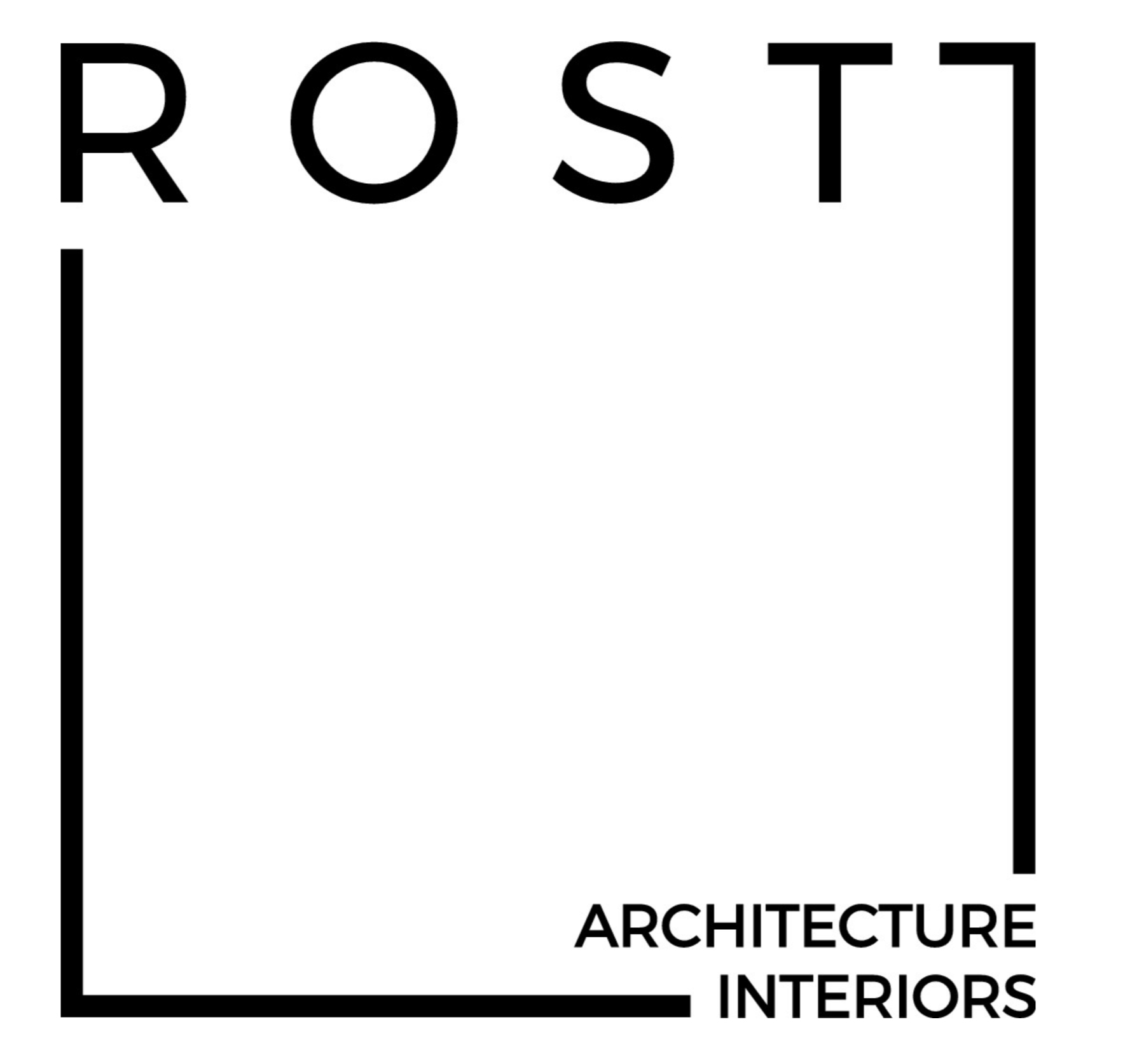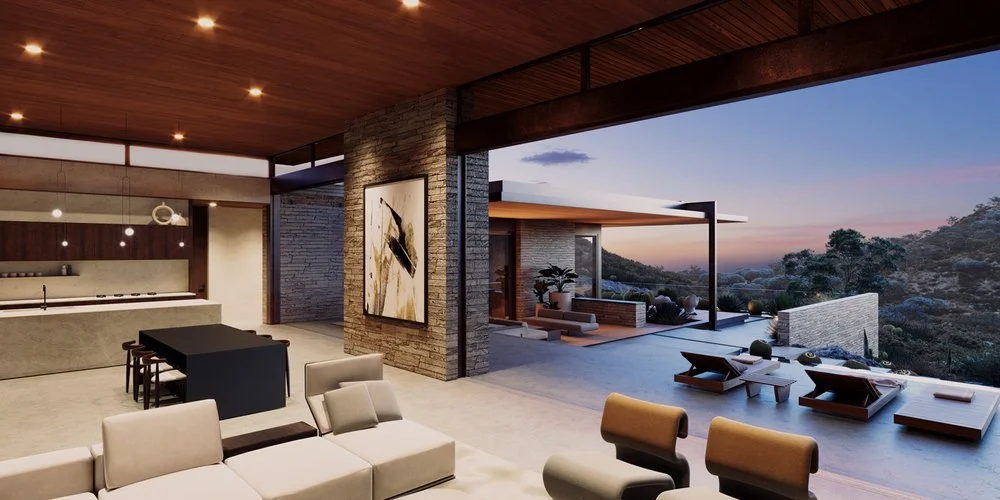Principal and Architect of ROST Architects, Mitchell Rocheleau, discusses how ROST Architects' design philosophy incorporates the existing landscape and environment of a property into its residential designs, allowing nature to lead the way and providing inhabitants the experience of a reconnection and grounding with the nature that surrounds them.
Read MoreLouis Kahn's architecture tells a larger story about a cultural shift in America in the first half of the 20th century. It was the shift into Modernism and a departure from historical traditions of the past. Ignited by the ideas of the Enlightenment, where rationalism, individualism, and science reigned supreme, these ideas spawned a new modern architectural movement that catalyzed a departure from historical traditions. Efficiency, profit, abstraction, and mechanization drove the new modern architecture
Read MoreRost Architects summarizes how its design philosophy incorporates the existing landscape and environment of a property into its residential designs, allowing nature to lead the way and providing inhabitants the experience of a reconnection and grounding with the nature that surrounds them.
Read MoreIdentifying how a society's collective psychology is reflected in our current built environment, Principal and Architect of ROST Architects, Mitchell Rocheleau, discusses how we can begin to create an environment that is more conducive to an authentic human experience.
Read MoreReflecting on what a city's layout and its most prominent buildings portray, Principal and Architect of ROST Architects, Mitchell Rocheleau, discusses what impact he believes this has on the values emphasized by a city and how this affects the human experience.
Read MoreDeep into our ancient past, humans have been building sacred spaces. These came in the form of megalithic monuments, temples, ziggurats, pyramids, cathedrals, shrines, and mosques, among countless others. Spirituality, ritual, myth, and religion consumed their daily lives. Our ancestors created sacred spaces on Earth to honor and connect with their gods and the heavens.
Read MoreIn many modern cities, there seems to be a lack of institutions and structures offering life guidance, emotional development, mental health, spirituality, and helping people find answers to life’s more significant questions.
Read MoreInfluenced by travel in European cities, life in North American cities, and authors such as Jane Jacobs, and Danish architect, Jan Gehl, Principal and Architect of ROST Architects, Mitchell Rocheleau, discusses what he believes are characteristics of captivating cities.
Read MoreUnderstanding a culture’s collective psychology/values and deciphering how those ideas manifest in their built environment can help inform how we build cities for the future. Despite the importance of such studies, it is rare to stumble upon someone who writes about the intersection of psychology and the built environment, especially one who expresses ideas clearly and accessibly.
Read MoreMitchell Rocheleau, meets with Roderick Beaton to discuss Ancient Greek Culture & Cities, and the impact it has on modern day city design.
Read MoreThroughout its existence, Venice and its people have had a unifying narrative: the struggle against water. Although the rising sea levels have resulted in death, destruction, and flooding, it has also served a valuable role as the collective antagonist of the Venetian people. It is human nature to band together when faced with a common challenge or adversary. Through necessity and under the constant threat of rising tides, Venetians developed ingenuity, a work ethic, and a common purpose. The bond created by this struggle has been one of the key ingredients to the progress and prosperity of Venice.
Read MoreAmerican artist Edward Hopper spent significant time observing the city and generated a body of work that resonated with the country. He seemed to be drawn to city life, buildings, and infrastructure. Much of his work depicts the relationship between the city, nature, and people.
Read MoreWhy is Central Park important for our generation to understand? Why would a park constructed in the late 1800’s be significant to our contemporary society? Central Park depicted a moment in our civilization when humans experienced a shift and moment of self-awareness regarding our nature as humans and the environment we were creating. In the late 1800s, New Yorkers stopped and questioned the growing and developing city around them.
Read MoreWhy would we be interested in understanding the first settlers of New York City? New York has been a pivotal city in the history of America and the world. One of its ingredients of success lies in the mindset, values, philosophies, and way of life of the people who founded and grew the city. These ideas were manifested in the city's fabric and directly affected the shape of the urban environment.
Read MoreA slow yet palatable transition within the city started around the sixteenth century. The forces of religion that had driven the city started to contend with a new stimulus based on money and profits. The mercantilist and capitalistic philosophies began manifesting in the city's physical form. The town was still firmly rooted in its medieval customs and structures; however, it was clear that things were changing throughout the Western world.
Read MoreIn the early 1960s, like many cities worldwide, Copenhagen began carving out spaces for the automobile by building streets, highways, and parking inside the city. A group of architects and urban designers predicted the detrimental impacts this could have on the form and life of their town. When the city began to fall into economic decline, the local government showed receptivity to the Architects' ideas and began taking action to revitalize the city.
Read MoreListen to the interview with Leo Hollis about the history of London, St. Paul's Cathedral and Sir Christopher Wren.
Read MoreThere are many reasons why a city becomes a point of destination. People are attracted to certain cities and travel from all over the world to see them. However, many people have trouble articulating why they enjoy them. They know something about it makes them feel comfortable, but they can't put their finger on it.
Read MoreIn the fifth century, Rome was in steady decline. The empire fell apart due to prolonged outside attacks and the hedonistic, corrupt culture that developed among its leaders and citizens. Life became hollow, brutal, and meaningless. A new religion called Christianity emerged, along with a reimagined way of life. Small ascetic Christian groups began to withdraw from society throughout the Roman Empire. Many of these early groups can be traced to the deserts of northern Egypt.
Read MoreRome's history is often presented as a glittering metropolis full of architectural excellence, sophisticated engineering, extensive paved roads, and glorious monuments. Our contemporary entertainment industry romanticizes the tales of Roman emperors, warriors, gladiators, and politicians. When we visit the ruins, we imagine the daily life of ancient Rome as a pageant of prosperity and industriousness that supported the growth of an ancient utopia. These aspects and portrayals of Rome have a degree of truth behind them. However, a darker side of Rome managed to evade the limelight.
Read More



















